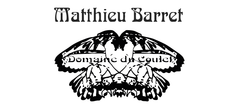8 products
- Red Wine
- Pinot Noir
- Organic
- Dry
- 750ml
About the Winery
Domaine de la Garenne
Rooted in the hills of Verdigny for generations, the Godon-Reverdy family has always worked this land — first in service to the Lords of Verdigny, then the cathedral of Bourges, and finally for themselves. The slopes, trees, and fields have shaped the winery's identity, walked by the parents, grandparents, and great-grandparents before them. It was after World War II that their great-grandfather, Amédée Reverdy, became a winemaker — not by plan, but by providence and a fateful draw of the short straw. Since then, each generation has built on that legacy.
Today, Domaine de la Garenne cultivates 12.5 hectares across 37 carefully managed plots in the Sancerre AOC, a renowned Centre-Loire appellation recognized since 1936 for whites and 1959 for reds and rosés. They grow Sauvignon Blanc and Pinot Noir, producing dry white, red, and rosé wines shaped by the region's oceanic climate and diverse soils. Their vineyards span three key soil types: Caillottes (chalky and vibrant), Clay-siliceous (flinty and mineral), and Terres Blanches (rich clay-limestone offering fruit and length). Embracing organic and biodynamic practices, they are committed to working in harmony with nature, letting each terroir express itself fully in the wines. In a region of 366 passionate winegrowers and 2,999 hectares under vine, the estate remains a proud family story — one of heritage, resilience, and a profound love of the land.
- Red Wine
- Syrah
- Biodynamic, Natural, Organic, Vegan-Friendly
- Dry
- Medium Bodied
- 750ml
- 12.5% alc./vol
About the Winery
Domaine du Coulet - Matthieu Barret

Matthieu Barret was born in Aix-en-Provence in 1975 and studied viticulture in Beaune.
He is the 7th generation vigneron and joined his grandfather in Cornas in 1997. Previously, his family had only been farming and selling grapes. He practices biodynamic viticulture, obtaining very low yields (23 hl/ha) and extraordinary quality. He describes his wines as being 100% grape, with a very low sulphite addition. His wines are extremely clean, and, true to the Cornas character. Domaine du Coulet was founded by Matthieu Barret’s grandfather after WWII, and over the years has supplied grapes to some of the best known producers in the Northern Rhône, including Chapoutier and Delas. While his father eschewed the agrarian lifestyle, opting instead for a career in international business, Matthieu knew early on that he wanted to be a vigneron. In 1998 at the age of only 23, he took over the family’s 25 acres of well-situated vines on the terraced hillsides of Cornas.
From the beginning, Matthieu has employed natural, organic practices and by 2002 (his second year of production) the domaine received its biodynamic certification. With each vintage, Matthieu has gained a better understanding of his vine parcels and through thoughtful experimentation, he now turns out a remarkable selection of Cornas wines that express the unique nuances of each micro-terroir. No new oak, no racking, minimal use of sulfur and no fining or filtration. Pure, sexy Syrah.









